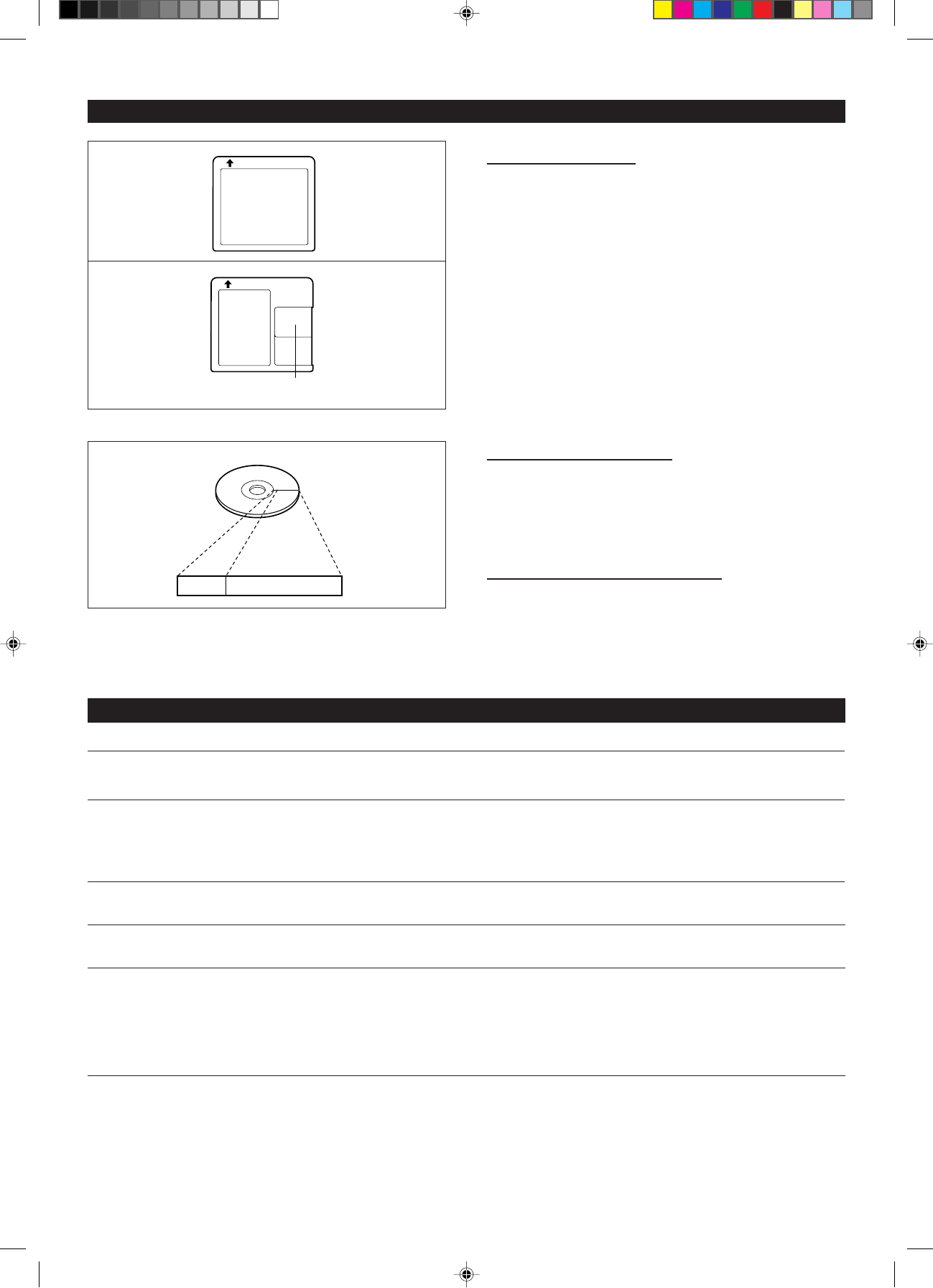
53
HH
HH
H Types of discs
There are two types of MiniDiscs: playback-only and recordable
type.
II
II
I Playback-only MiniDisc:
This type of MiniDisc is used for commercially available pre-
recorded music. This is the same kind of optical disc as a CD.
Playback is performed using an optical pickup. (Recording
and editing are not possible.)
A shutter is used on only one side (back).
II
II
I Recordable MiniDisc:
This is a “blank disc” which recording can be performed. A
magneto optical disc is used.
Recordings are made using a laser and a magnet. Repeated
recording is possible.
HH
HH
H High-speed access
A unique feature of the MiniDisc is the ability to locate the
beginning of a desired track at high speed.
This is because the track number and track name data are stored
in a TOC (Table of Contents).
HH
HH
H Shock-Resistant Memory
During playback, approximately 10 seconds of information is
stored in the semiconductor memory. Therefore, even when the
pickup cannot read information for a second or two because of
external shock, the sound continues without interruption be-
cause the information stored in memory is output.
Label
Label
Shutters will be used on both sides.
Disc
TOC Sound data
MINIDISC SYSTEM LIMITATIONS
Even if the maximum recording time of a MiniDisc is not When the number of tracks used reaches the limit, regardless of the remainder being
reached, “DISC FULL” or “TOC FULL” may be displayed. recording time, further recording will be impossible. (Maximum number of tracks: 255)
Even if the number of tracks and the recording time have When emphasis information (equalizer treatment in the treble section) in a track
reached the limit, “DISC FULL” may be displayed. switches on/off many times, each change is assumed to be the beginning of a new
track, which will quickly use up all available track numbers, making further recording
impossible, regardless of the remaining time, recording time or the number of tracks
on the original.
Even if several short tracks are erased, the remaining When the remaining recording time of a disc is displayed, short tracks less than 12
recording time may not show an increase. seconds long may not be included in the total.
Two tracks may not be combined in editing. For MiniDiscs which repeated recording and editing operations were performed, the
COMBINE function may not work.
The total of the recorded time and time remaining on a disc A cluster (about 2 seconds) is normally the minimum unit of recording. So, even if a
may not add up to the maximum possible recording time. track is less than 2 seconds long, it will use about 2 seconds of space on the disc.
Therefore, the time actually available for recording may be less than the remaining time
displayed.
If there are scratches on a disc, those sections will be automatically avoided (no
recording will be placed in those sections). Therefore, recording time will be
reduced.
(Continued)
38-58 98.6.23, 10:34 AM53


















